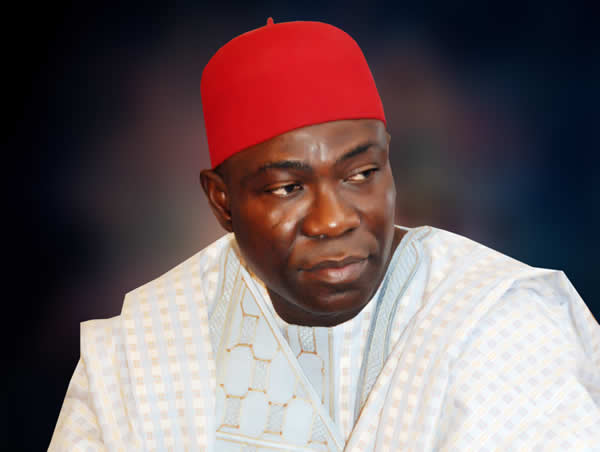The Senate has said President Muhammadu Buhari should sign the 2016 budget into law before reviewing the contentious areas.
The resolution was one of the highpoints of what an insider described as a “stormy and rancorous” closed session by senators yesterday.
Most senators were said to have canvassed their opinions about the way forward for the controversial budget.
Senators were angry at the way and manner the budget was handled by the leadership of the National Assembly.
Some senators, it was gathered, sought changes in the leadership of the committees as part of the way forward.
Deputy Senate President Ike Ekweremadu, who presided over the closed session, said after the session that “the Senate in a closed session deliberated on issues relating to the 2016 Appropriation Bill and the way forward for the quick resolution of all matters related to the early implementation of the budget in the best interest of our nation.”
Though he did not go into details, a source described the meeting as “stormy and rancorous”.
Ekweremadu noted that the resolution to implore President Buhari to assent to the budget before the review was informed by the need to beat time.
He said: “We took cognisance of the fact that time is ticking and to beat time we decided to approach Mr. President to implore him to sign the budget and bring it back to us for any corrections he may desire.”
The deputy Senate president explained that the need to implore the President to sign the budget was necessitated by the fact that the National Assembly could no longer alter the budget after it was passed and transmitted to the President for his assent.
He said they were also “trying to avoid a situation where after 30 days, if the President failed to assent to the budget, it will be assumed that he has withheld assent”.
“If that happens, the National Assembly may have no other option than to over ride the President’s assent,” Ekweremadu said.
A source said the senators took cognisance of Section 59 of the Constitution to arrive at their resolutions.
Section 59 (4) says: “Where the President, within 30 days after the presentation of the Bill to him, fails to signify his assent or where he withholds assent, then the Bill shall again be presented to the National Assembly sitting at a joint meeting, and if passed by two-thirds majority of members of both Houses at such joint meeting, the Bill shall become law and the assent of the President shall not be required.”
The budget was transmitted to the President for assent on April 7.
On changing the chairmanship of the Appropriation Committee, the upper chamber was said to have resolved that there was no need since the National Assembly was ready to correct identified anomalies in the budget.
Besides, the lawmakers were said to have reasoned that changing the committee’s chairmanship might breed more trouble for the Senate.
Senate leader Mohammed Ali Ndume confirmed that the Senate was talking with President Buhari on ways to resolve grey areas in the budget.
The Borno South lawmaker told reporters that the National Assembly was prepared to address areas of concern to the President in the Budget.
He said: “Nobody should expect me, on my honour, to disclose details of what we discussed in the closed session. It is not true that we asked the Chairman of the Senate Committee, Senator Danjuma Goje, to resign. That is not what we discussed. Goje was appointed and he could only be removed by a vote of no confidence. We can only ask elected officers of the Senate to resign not chairmen of committees.”
Thenation…….
This page has been viewed 173 times


























